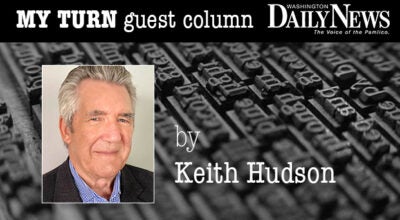Save up: Young adults shed debt
Published 9:21 pm Monday, August 12, 2013
By avoiding large purchases like cars and homes, young adults have come out of the Great Recession with the least collateral damage.
A Pew Research Center analysis of Federal Reserve Board and other government data found that young adults shed more debt than older adults between 2007 and 2010.
During that period, the median debt of households headed by adults under 35 fell by 29 percent, compared to an 8 percent decline for adults 36 and older.
In addition to large purchases, young adults reduced their credit-card debt from 48 percent in 2007 to 39 percent in 2010.
“Also, the share of younger households holding debt of any kind fell to 78 percent, the lowest level since the government began collecting such data in 1983,” reported Pew.
Young adults avoided investments in securities as well. Now that the economy is on the mend, people are taking a second look at their financial plans.
Jim Buckman, owner of Buckman Iinvestments, said the first step in financial planning is to set a goal.
“The first thing I would want to do is sit down with them, analyze their background and financial situation at the time and then lay out a plan for their future,” he said.
Buckman recommended starting an investment portfolio before delving into large purchases like cars or homes.
“They ought to always have something set aside,” he said.
Michael Adams, owner and registered financial consultant of Adams and Associates Inc. in Bath, recommended starting conservatively and systematically with an affordable monthly investment, rather than a lump sum.
“Some funds have a minimum of $500 to open an account. Some are $250,” Adams said. “But some people can’t afford that initial investment. So, there are some funds that will allow you to start with at zero balance.”
For someone just starting out, there really is no bad time to invest. Adams said the fluctuations do not affect those with investments that will not be needed for decades.
“The wild fluctuations in the market affect the ones that have accumulated value in their accounts,” he said.
Adams bases his investment strategy on the individual investor and his or her tolerance for these fluctuations.
“Everybody’s different; it’s not a one-size-fits all thing,” he said. “Some people can lose several percent in an account and have it not really bother them. Others wouldn’t be able to sleep at night.”
Mike Goodwin, a financial planner with Edward Jones Investments, Belhaven, recommended investing for the long-term.
“With the stock market over the last 60 years, we’ve seen good years, bad years all the way through. But it has always out-performed over time. It has still produced,” Goodwin said.
He suggested young investors build a portfolio that is heavy on stocks.
Most people starting a financial investment plan do not know a lot about stocks and their financial options. Goodwin said he is there to explain it.
Most people start with a small investment. The key is to start.
“Albert Einstein said the most powerful force in the universe is compounded interest,” he said.
Goodwin said investors should not let the state of the economy keep them from planning for the future.
“There is never a bad time to invest,” he said. “That’s when fortunes are made, especially when the stock market is down.”




